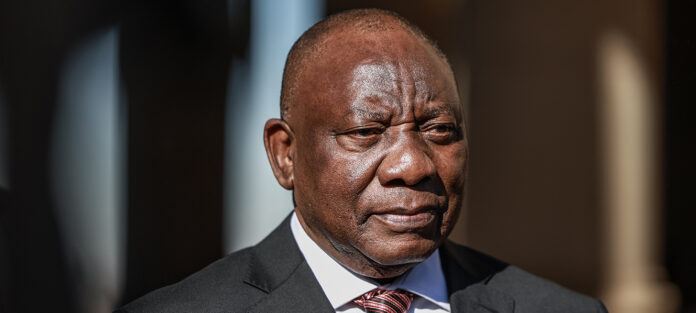The ambitious plans to build smart cities in South Africa was first announced in 2007 and again revived by President Cyril Ramaphosa during his 2020 State of the Nation Address. The President promised “it will not only be smart and 5G-ready, but we will be a leading benchmark for green infrastructure continentally and internationally”.
Lanseria was set to be one of the first areas in Gauteng to get a taste of modern, eco- friendly living and it was predicted that between 350,000 to 500,000 people will one day call the smart city home.
With bated breath citizens have been waiting for the first phase of the project to take off, with the prospect of the country’s first post-apartheid city rising to change the social and economic apartheid spatial architecture.
The only tangible development is the R320‑million water treatment plant (phase 1), breaking ground in October 2024, expected to process 2 megalitres per day and reuse 90% of processed water.
Fierce competition
However, this is a far cry from the development the masses were expected. They have instead been bombarded with articles reminding them of a dream not yet realised.
This all while one of South Arica’s fiercest economic competitors in the continent, Egypt, has almost completed the first phase of their smart city project, in an area now called New Cairo.
The new 93 000-hectare administrative capital of Egypt is modern, beautiful and clean but stays true to their architectural history which combines elements of both traditional African and Islamic design.
I saw it with my own eyes; it is beautiful. Skyscraper offices, mosques, churches, theatres, schools and smooth roads, gave me an entirely new perspective on Egypt and was a sharp contrast to the grim and dreary Old Cairo.
The project, which commenced in 2015, will become home for 50 000 public servants as well as 12 000 university students. This means that it has taken the Egyptian government and its private partners just a decade to implement the plan.
The smart city features free green transportation for public servants, a monorail, 24-hour surveillance facility and is predicted to one day achieve 100% recycling and composting mandates.
It was impressive to see such significant developments in another African country; one could not help but think about whether a smart city in South Africa will only remain a pipe dream.
Power issues are a thing of the past
Load-shedding was a major constraint hindering the development of smart cities. But now that government has managed to make it a problem of the past, there are other issues which need to be dealt with.
There needs to be a way to deal with vandalism at smart city sites. One report highlighted that damage to smart city infrastructure caused losses of over R1.6 billion, undermining service delivery and deepening inequality.
Security, privacy, and lack of digital skills halted broader adoption of smart technologies which are pivotal for smart cities
Ensuring that companies working on the construction of these cities have adequate financial backing is key. Projects like Modderfontein which was dubbed as the “New York of Africa” failed due to misalignment with municipal planning and the Chinese group Zendai, running into financial trouble.
Egypt’s progress illustrates the impact of clear governance, solid financial backing, and overcoming logistical hurdles.
Visit SW YouTube Channel for our video content



